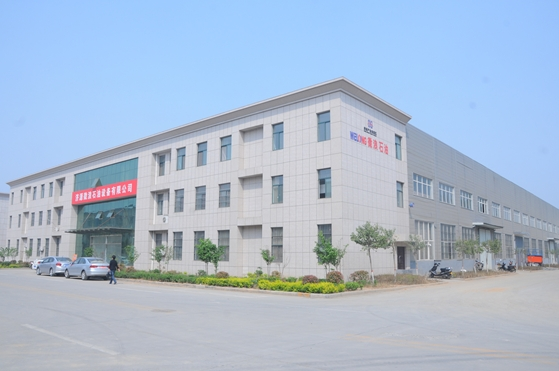Key Features and Benefits of Casing Power Tong in Offshore Operations
Advanced Torque Control Systems
Modern Casing Power Tongs are equipped with sophisticated torque control systems that allow for precise application of force during make-up and break-out operations. These systems utilize advanced sensors and computerized controls to monitor and adjust torque levels in real-time, ensuring that each connection meets the exact specifications required for offshore drilling. The ability to maintain consistent torque application across multiple joints enhances the overall integrity of the casing string, which is paramount in the high-pressure environments encountered in offshore wells.
Enhanced Safety Mechanisms
Safety is a top priority in offshore drilling, and Casing Power Tongs incorporate numerous features to protect operators and equipment. Automated clamping systems reduce the need for manual intervention, minimizing the risk of injuries associated with handling heavy casing. Additionally, remote operation capabilities allow technicians to control the tong from a safe distance, further enhancing workplace safety on the rig floor. These safety mechanisms not only protect personnel but also contribute to uninterrupted operations, which is crucial in the time-sensitive offshore drilling environment.
Adaptability to Diverse Casing Sizes
Offshore drilling projects often require working with various casing sizes throughout the well construction process. Advanced Casing Power Tongs are designed with quick-change mechanisms that allow for rapid adaptation to different casing diameters. This versatility eliminates the need for multiple specialized tools, saving valuable deck space on offshore platforms and reducing equipment logistics. The ability to efficiently handle a range of casing sizes with a single tool streamlines operations and contributes to overall project efficiency.
Operational Efficiency Improvements in Offshore Drilling with Casing Power Tong
Accelerated Connection Times
In the fast-paced world of offshore drilling, every minute counts. Casing Power Tongs significantly reduce the time required to make up or break out casing connections compared to traditional manual methods. The automated processes and high-torque capabilities allow for swift and efficient handling of casing joints, minimizing downtime during critical phases of well construction. This acceleration of connection times translates directly into reduced rig time and, consequently, substantial cost savings for offshore drilling projects.
Consistent Performance in Challenging Conditions
Offshore environments present unique challenges, including constant motion, limited space, and exposure to corrosive elements. Casing Power Tongs are engineered to maintain consistent performance under these demanding conditions. Their robust construction, often featuring marine-grade materials and protective coatings, ensures reliability even in salt-spray environments. The stability and precision of these tools remain uncompromised despite rig movement, allowing for accurate torque application and connection integrity in all weather conditions.
Integration with Automated Drilling Systems
As offshore drilling operations become increasingly automated, Casing Power Tongs are evolving to integrate seamlessly with modern rig systems. Advanced models can interface with digital drilling control systems, allowing for coordinated operations and real-time data logging. This integration enhances overall rig efficiency by enabling synchronized workflows and providing valuable data for performance analysis and predictive maintenance. The ability to operate in harmony with other automated systems on the rig floor represents a significant leap forward in offshore drilling technology.
Maintenance and Longevity Considerations for Offshore Casing Power Tongs
Corrosion Resistance and Material Selection
The harsh marine environment poses significant challenges to equipment longevity. Manufacturers of high-quality Casing Power Tongs address this by utilizing corrosion-resistant materials and advanced protective coatings. Stainless steel components, specialized alloys, and multi-layer coating systems are employed to shield critical parts from salt water exposure and chemical corrosion. This focus on material selection and protection ensures that Casing Power Tongs maintain their structural integrity and operational precision over extended periods in offshore conditions, reducing the frequency of replacements and repairs.
Preventive Maintenance Protocols
To ensure optimal performance and longevity of Casing Power Tongs in offshore settings, rigorous preventive maintenance protocols are essential. These typically include regular inspections, lubrication schedules tailored to marine environments, and proactive replacement of wear parts. Advanced diagnostic tools, such as vibration analysis and thermal imaging, are increasingly used to detect potential issues before they escalate into critical failures. Implementing these preventive measures not only extends the operational life of the equipment but also minimizes unexpected downtime, which is particularly costly in offshore operations.
Training and Operator Proficiency
The complexity of modern Casing Power Tongs demands a high level of operator proficiency to maximize their potential and ensure their longevity. Comprehensive training programs are crucial for offshore personnel, covering not only operational procedures but also basic maintenance and troubleshooting techniques. Well-trained operators can identify early signs of wear or malfunction, operate the equipment within optimal parameters, and perform routine maintenance tasks effectively. This human factor plays a significant role in extending the service life of Casing Power Tongs and maintaining their peak performance in challenging offshore environments.
In conclusion, Casing Power Tongs have revolutionized offshore drilling operations by providing unparalleled efficiency, safety, and reliability in handling casing pipes. Their advanced features, adaptability to harsh conditions, and integration with modern drilling systems make them indispensable tools in today's offshore oil and gas industry. As technology continues to evolve, we can expect further enhancements in Casing Power Tong design and functionality, further optimizing offshore drilling processes. For more information about Casing Power Tongs and other oilfield products, please contact us at oiltools15@welongpost.com.

